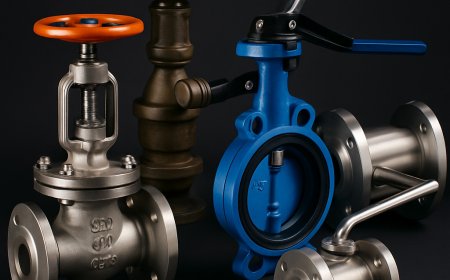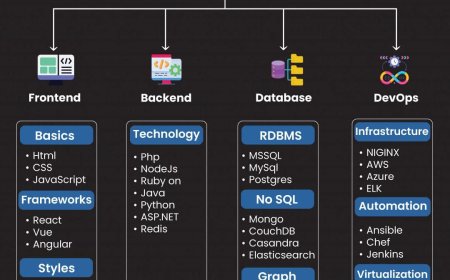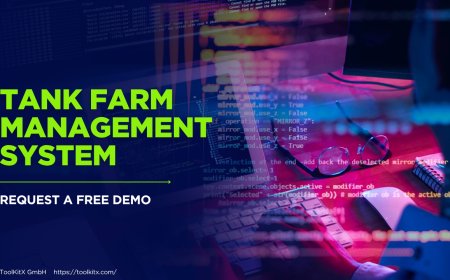What Sets a Great AIOps Platform Development Company Apart from the Rest?
Discover the key qualities that distinguish a top AIOps platform development company, from innovation and scalability to domain expertise and real-time insights.

In today's era of digital transformation, IT operations are under more pressure than ever. Enterprises are embracing hybrid cloud infrastructures, managing sprawling microservices architectures, and grappling with enormous volumes of machine data. In such a landscape, Artificial Intelligence for IT Operations (AIOps) has emerged as a crucial solution, leveraging machine learning, big data, and automation to streamline and optimize IT operations.
However, not all AIOps development companies are created equal. With dozens of vendors promising cutting-edge platforms, identifying a truly exceptional AIOps platform development company requires a keen understanding of what differentiates leaders from the crowd.
In this blog, well explore the key attributes that set a great AIOps platform development company apart from the rest.
1.Deep Expertise in AI/ML and Data Science
AIOps isn't just about monitoring logs or alertsit's about turning noise into insights. A top-tier AIOps platform development company demonstrates:
-
Advanced Machine Learning Expertise: They go beyond rule-based systems and build platforms that can detect anomalies, recognize patterns, and forecast incidents using supervised and unsupervised learning.
-
Data Engineering Excellence: They ensure that data pipelines can handle diverse IT telemetrylogs, metrics, traces, and eventsat scale, in real-time.
-
Natural Language Processing (NLP): Great platforms often include NLP capabilities to analyze ticketing systems, documentation, or even chat logs for better context.
Without these capabilities, platforms are simply reactive tools, not proactive intelligence engines.
2.Domain Knowledge in IT Operations
AI without context is like a compass with no map. A reliable AIOps vendor understands:
-
Legacy and Modern Infrastructures: From mainframes to Kubernetes clusters, they know the nuances of traditional and modern environments.
-
ITSM & DevOps Integration: They design platforms that align with existing workflows, seamlessly integrating with tools like ServiceNow, Jira, and CI/CD pipelines.
-
Incident Lifecycle Management: Their solutions dont just detect issuesthey contextualize, triage, route, and often resolve them automatically.
Deep familiarity with IT operations best practices helps a company build an AIOps platform that speaks the language of IT teams.
3.Customizable and Scalable Architecture
A great AIOps platform must adapt to the unique needs of each enterprise. Standout companies design platforms that are:
-
Modular: So organizations can pick and choose the capabilities they need (e.g., anomaly detection, root cause analysis, auto-remediation).
-
Cloud-Native and Scalable: Built using microservices, containers, and orchestration tools to handle large-scale, dynamic environments.
-
Vendor-Agnostic: Capable of ingesting data from a wide range of systems and integrating with various tools across observability, infrastructure, and application layers.
This flexibility enables companies to future-proof their investment in AIOps.
4.End-to-End Observability Integration
Modern AIOps isnt a siloits an enhancer of observability. The best AIOps development companies ensure:
-
Full-Stack Visibility: Integrations with metrics, logs, traces, user experience monitoring, and synthetic tests.
-
Real-Time Correlation: Ability to correlate data across layers (application, infrastructure, network) to pinpoint the root cause quickly.
-
Intelligent Dashboards: Dynamic visualizations that adapt based on ML insights, not just raw metrics.
This tight alignment with observability tools transforms AIOps from a reactive system to a predictive powerhouse.
5.Proven Use Cases and Customer Success
Words are easy; results are what matter. A top AIOps company demonstrates its capabilities through:
-
Real-World Case Studies: Showing how their platform reduced MTTR (mean time to resolution), automated ticket classification, or predicted outages.
-
Industry-Specific Solutions: Tailoring approaches for finance, healthcare, e-commerce, etc., where regulatory, compliance, and performance needs vary.
-
Customer Testimonials and Retention Rates: Long-term relationships and glowing endorsements are strong indicators of real impact.
An experienced vendor has walked the walk and can show measurable value delivered to businesses like yours.
6.Strong Focus on Automation and Remediation
AIOps isnt just about identifying issuesits about acting on them. Great companies build platforms that:
-
Enable Intelligent Automation: From alert suppression to auto-remediation scripts that restart services, reallocate resources, or adjust configurations.
-
Close the Loop with ITSM: Automatically create, update, and resolve tickets with contextual intelligence.
-
Reduce Human Intervention: By learning from past incidents, automating root cause analysis, and prioritizing incidents intelligently.
This automation-centric mindset is what drives real operational efficiency.
7.Commitment to Data Privacy and Security
With sensitive operational data flowing into AIOps platforms, security is non-negotiable. The best development companies provide:
-
Robust Data Governance Models: Ensuring data segregation, encryption (at rest and in transit), and access control.
-
Compliance with Global Standards: Adherence to GDPR, HIPAA, SOC 2, ISO 27001, and more.
-
Secure AI Pipelines: Ensuring model integrity and protection against adversarial ML attacks.
This builds enterprise trust and makes the platform suitable for industries with strict regulatory requirements.
8.Innovation-Driven Roadmap and R&D Investment
The AIOps field is evolving rapidly. The top companies dont just keep upthey lead:
-
Continuous R&D: Ongoing investment in improving algorithms, adding new capabilities (like LLMs or explainable AI), and exploring new data sources.
-
Community Engagement: Contributions to open-source projects, publishing research papers, or hosting developer events.
-
Customer Co-Innovation: Working closely with enterprise clients to shape features and capabilities in line with real-world needs.
This ensures their platforms remain cutting-edge and adaptable to future IT landscapes.
9.Exceptional User Experience and Interface Design
Even the most powerful AI is useless if its buried under a confusing interface. Elite AIOps companies emphasize:
-
Intuitive UI/UX: Clean dashboards, drag-and-drop workflows, and contextual guidance for faster adoption.
-
Self-Service Capabilities: Empowering ops teams and developers to set up monitoring, alerts, and automation without deep technical training.
-
Actionable Insights: Presenting information in a prioritized, digestible way rather than flooding users with raw data.
This human-centric design approach increases user satisfaction and ensures platform stickiness.
10.Transparent Pricing and ROI Clarity
Great AIOps vendors are clear about the value they deliver and how they charge. Look for companies that offer:
-
Predictable Pricing Models: Avoiding per-alert or per-host pricing that can skyrocket unexpectedly.
-
ROI Dashboards: Built-in tools to measure cost savings, incident reduction, and efficiency gains.
-
Flexible Licensing: Options that suit businesses of different sizes and stages of maturity.
This transparency fosters long-term partnerships, not just one-time sales.
Conclusion
A truly outstanding AIOps platform development company isnt just a vendortheyre a strategic partner. They combine technical prowess, domain knowledge, security, and a relentless focus on customer success to deliver a platform that genuinely transforms IT operations.
As you evaluate AIOps vendors, look beyond buzzwords. Seek companies that:
-
Understand your challenges.
-
Have proven results.
-
Offer flexibility and scalability.
-
Are future-ready.
Because in the world of IT operations, the difference between good and great is the ability to turn data into decisive actionconsistently, intelligently, and securely.























